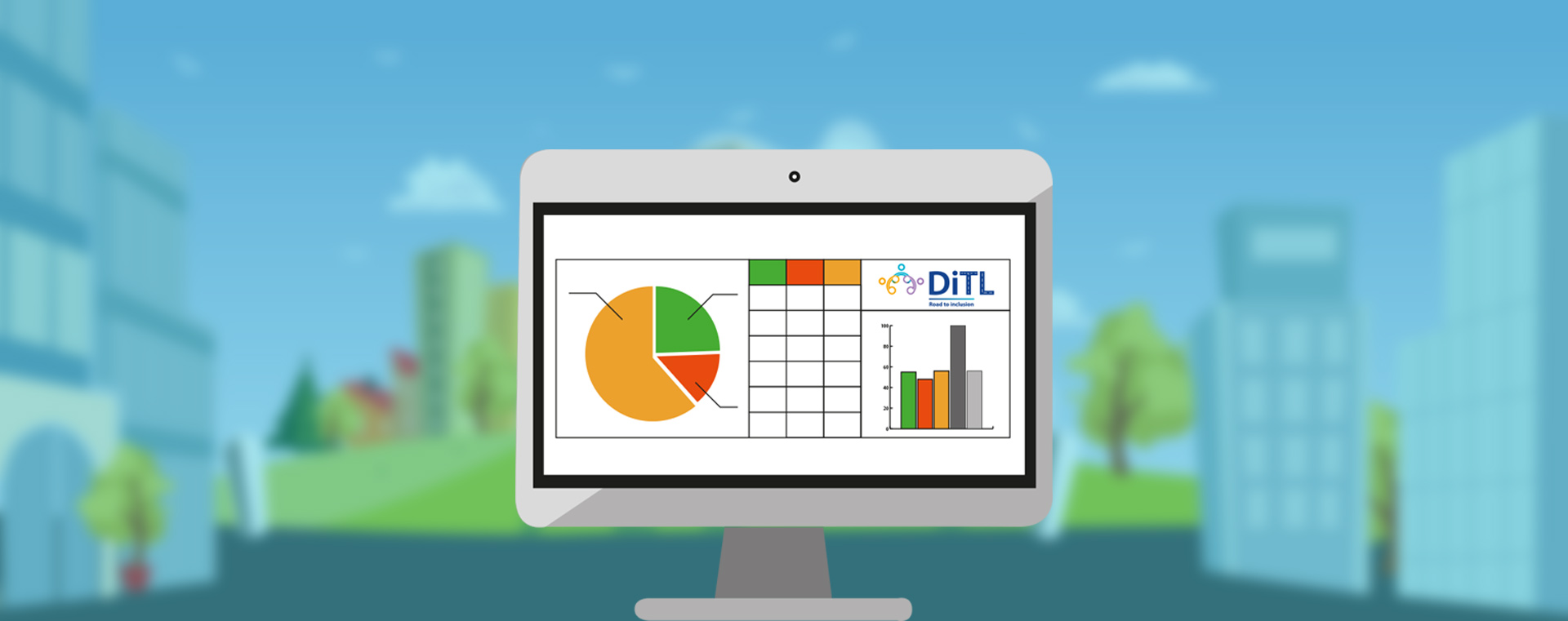
Results
The DiTL project, which spans 36 months, will implement three working activities to address the challenges people with disabilities face in accessing training for driving and warehousing professions.
Activity n°1:Inclusive regulations and provision in Transport and Logistics
In the absence of a shared regulatory framework, European countries, all of which are grappling with the integration of people with disabilities into the workface, have each attempted to find their own solutions, establishing specific criteria and methods within their respective national legislations. Given the persistent disparities across Europe in the treatment of people with disabilities and to tackle the variability in how rights are interpreted and implemented depending on territories and relevant institutions, this work activity aims to:
- Establish a better understanding of regulations related to the inclusion and employment of people with disabilities in each partner country.
- Understand how the European Directive 2006/126/EC on driving licenses, particularly Annex III (minimum standards concerning physical and mental fitness to drive a motor vehicle), has been transposed into the laws of each partner country.
- Assess the impact of these regulations on the accessibility of training and jobs preparing for roles in driving and warehousing for people with disabilities.
- Develop recommendations to encourage transnational and national regulations, as well as training framework, to become more inclusive.
Expected deliverable :
- Deliverable 1: Recommendations to encourage transnational and national regulations, as well as training frameworks, to be more inclusive.
Activity n°2: Adaptation measures and compensation technologies for training and inclusion
Contrary to popular belief, Transport and Logistics professions are accessible to people with disabilities and offer career opportunities that are often overlooked. Advances in technology, in particular, have broadened the possibilities. However, existing solutions remain poorly understood by training organizations and companies.
In this context, this work activity aims to inform and equip training organizations and businesses about existing innovations and good practices in each partner country to facilitate the training and employment of people with disabilities.
Specifically, this activity will achieve:
- A comprehensive inventory and analysis of existing technological solutions and compensation measures available in partner countries to support the inclusion of people with disabilities in training and professions within the sector.
- A toolbox compiling these findings, providing complete and factual information on the methods enabling a person with a disability to train and work in the sector.
- An e-learning pathway for training professionals in Transport and Logistics to enhance their capacity to support people with disabilities.
Expected deliverables:
- Deliverable 2 : An online toolbox
- Deliverable 3: An e-learning pathway
Activity n°3: Awareness and training
This work activity aims to implement training initiatives to shift perceptions – often stereotypical – regarding disabilities at every stage of the integration pathway (orientation, training, recruitment). It also aims to offer concrete solutions to prevent individuals from being disadvantaged due to their disability or too hastily categorized as unfit for training or exams.
The training actions will focus on strengthening the competencies of personnel involved in orientation, training, or determining the medical fitness of individuals for specific roles. Such personnel are often insufficiently trained to provide people with disabilities with objective, factual information about all the professions truly accessible to them. Additionally, this activity aims to validate the professional projects of people with disabilities within the Transport and Logistics sector and to ensure that training is offered without discrimination to all who could benefit from it.
This work activity seeks to combat stereotypes associated with disabilities to ensure free, objective, and non-discriminatory orientation and integration int the sector. It also strives to make technical and organizational compensation measures more widely known and therefore better implemented.
The ultimate challenge is to provide people with disabilities the same opportunities as those without disabilities by fighting against stereotypes and prejudices that exclude them from vocational training. This includes biases from certification authorities and other decision-makers, better train personnel involved in the training and integration pathways of people with disabilities, ensuring they can provide relevant support and guidance throughout their journeys, publicize and disseminate adapted equipment and tools designed to facilitate training, access to employment, or job retention for people with disabilities.
Expected deliverable:
- Awareness-raising and training actions for target stakeholders in each partner country.
